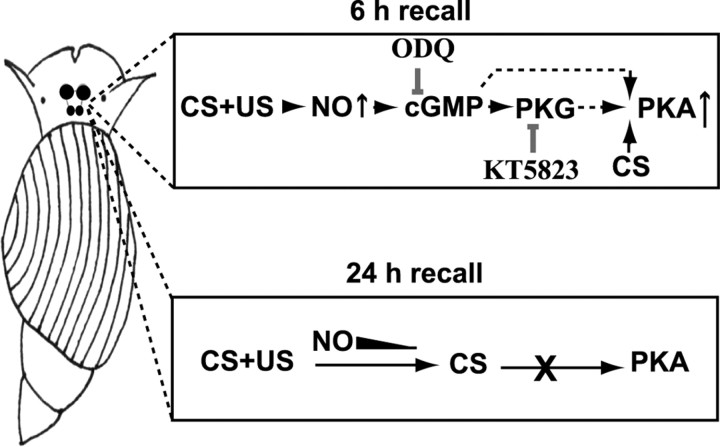Figure 1.
Training-related NO–cGMP signaling, in the CNS of Lymnaea, may play a role in mediating time-limited activation of PKA after recall. In the model shown here, CS presentation 6 h after conditioning enhances PKA activation through an interaction with training-stimulated cGMP/PKG. After conditioning, NO signaling diminishes with time (filled triangle in bottom box) so that by 24 h, recall is no longer able to activate PKA. Pharmacological inhibitors, such as 1H-(1,2,4)oxadiazole(4,3-a)quinoxalin-1-one (ODQ) and KT5823, as shown (top box), could be used to test the role of cGMP and PKG signaling in memory reconsolidation. US, Unconditioned stimulus.

